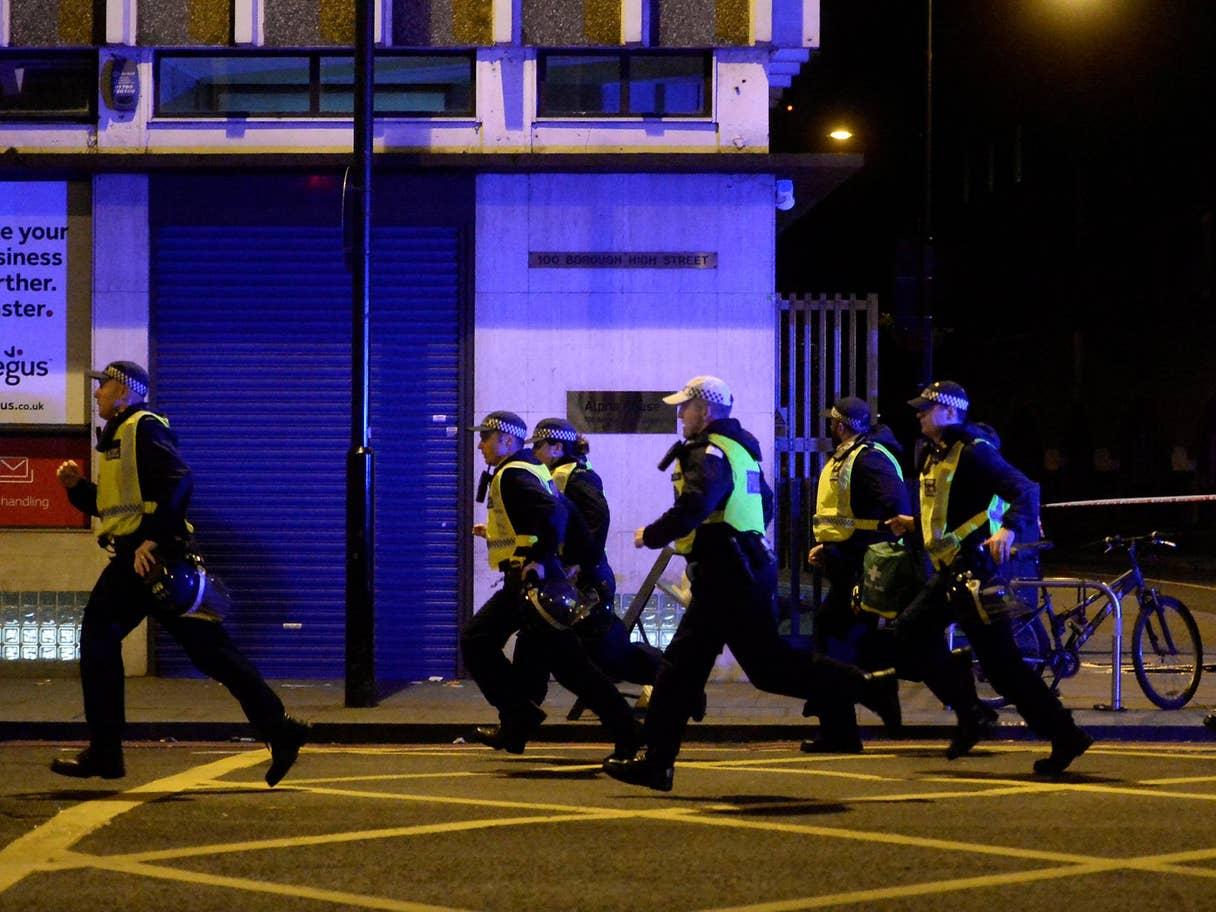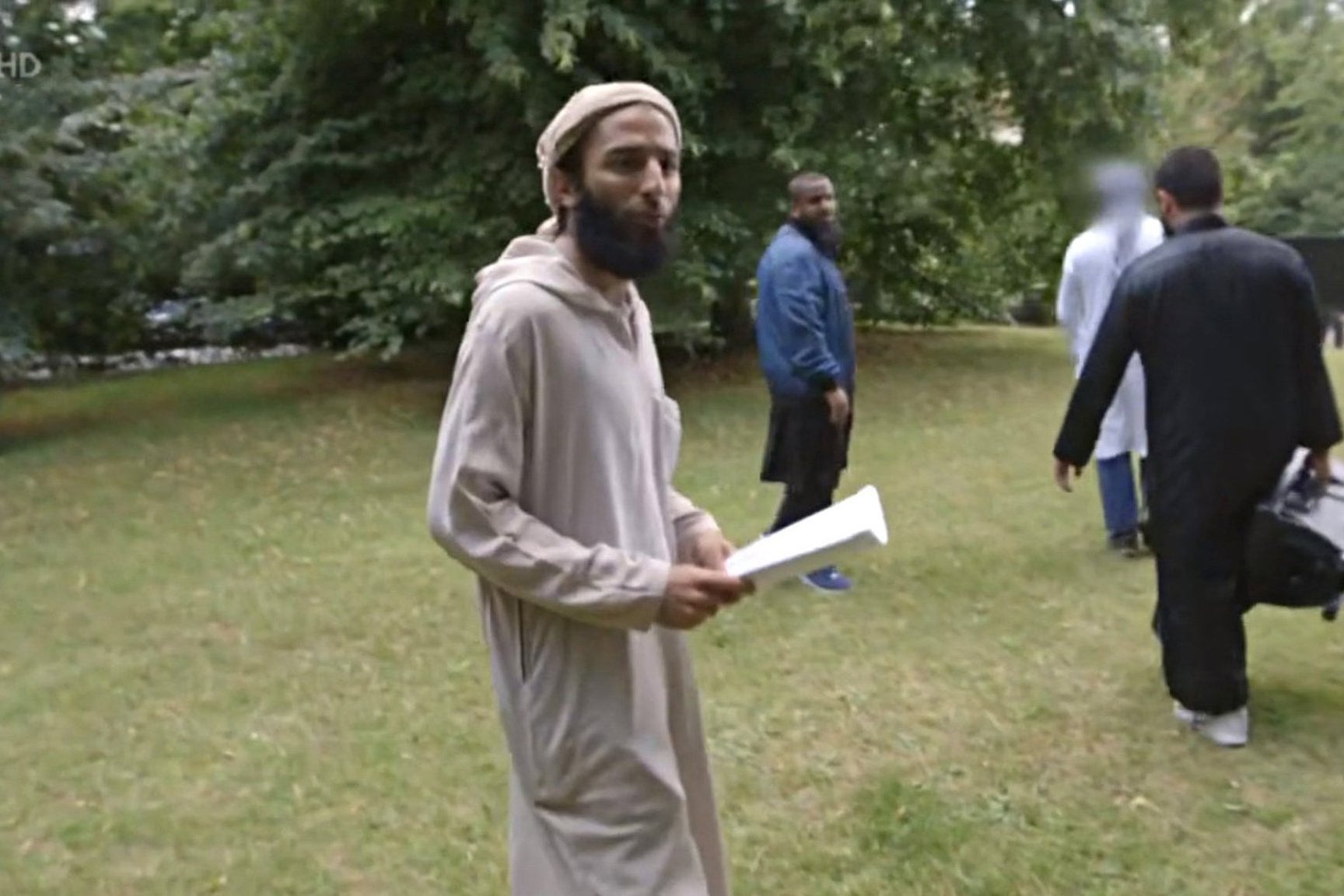‘Risk of future deaths’ from flaws in MI5 assessments of terror suspects, London Bridge report warns
Coroner says ringleader Khuram Butt was initially judged as having ‘weak capability’ by MI5

Your support helps us to tell the story
From reproductive rights to climate change to Big Tech, The Independent is on the ground when the story is developing. Whether it's investigating the financials of Elon Musk's pro-Trump PAC or producing our latest documentary, 'The A Word', which shines a light on the American women fighting for reproductive rights, we know how important it is to parse out the facts from the messaging.
At such a critical moment in US history, we need reporters on the ground. Your donation allows us to keep sending journalists to speak to both sides of the story.
The Independent is trusted by Americans across the entire political spectrum. And unlike many other quality news outlets, we choose not to lock Americans out of our reporting and analysis with paywalls. We believe quality journalism should be available to everyone, paid for by those who can afford it.
Your support makes all the difference.British security services could be letting terrorists slip through the net because of a flawed assessment process that saw the capability of the London Bridge ringleader rated too “weak” for him to launch an attack, a report has found.
Khuram Butt had been an MI5 subject of interest since 2015, but nothing was done to prevent him leading a knife-wielding gang on a murderous rampage, killing eight people and injuring 48 more before being shot dead by police on 3 June 2017.
He and fellow terrorists Rachid Redouane and Youssef Zaghba ploughed a hired van into pedestrians on London Bridge, before attacking people with kitchen knives around Borough Market.
After presiding over inquests into the deaths of the victims and perpetrators, Mark Lucraft QC, the chief coroner of England and Wales, called for MI5, counterterror police, the government and other authorities to take “action to prevent future deaths”.
He said it was his legal duty to make recommendations aiming to prevent a repeat of the atrocity.
“During the course of the inquests, the evidence revealed matters giving rise to concern,” Mr Lucraft said.
“In my opinion, there is a risk that future deaths could occur unless action is taken.”
In September 2015, an assessment using the “potential lone actor” triage tool concluded Butt represented only a medium security risk due to his “strong intent but weak capability”.
MI5 believed him to be detaching himself from former associates in Anjem Choudary’s al-Muhajiroun terrorist network, despite his appearance alongside Islamists in a television documentary, and concluded he was aiming to fight for Isis in Syria instead of carrying out an attack on British soil.
Officials said the operation monitoring him was suspended from February to April 2016 because of resourcing constraints following Isis’s Paris attacks, then downgraded in late 2016.
Despite receiving intelligence Butt could be seeking to radicalise children at a London school, MI5 suspended the investigation a second time in March 2017.
The spy service reopened the investigation in May, but a second lone actor assessment just weeks before the London Bridge attack found he had “moderate capability and moderate intent”.
Mr Lucraft called for the home secretary and MI5 to test the potential lone actor system after evidence suggested it “may be imprecise and highly variable in its assessments”.
Bereaved families questioned how capability could be judged amid the rise of terror attacks using readily available knives and vehicles, without specialist equipment or techniques.
“Although attack methodologies of low sophistication may often result in lower tallies of dead and injured, they can be harder to detect in the planning and preparation phase,” the coroner said.
Mr Lucraft also called the suspension of priority investigations like that into Butt a “matter of legitimate public concern” and called for security services to consider scaling back monitoring rather than pausing it completely in such cases.
Noting that the second suspension ran for six weeks until a month before the London Bridge attack, he added: “It is possible that, but for that suspension, further useful intelligence about Butt would have been obtained, including more information about his links to the other attackers.”
The report was highly critical of the failure to install barriers on London Bridge, even after it was flagged as a potential terror target by police counterterrorism security advisers and a consultancy firm.
Mr Lucraft said the “excessively rigid” national guidelines that designate what sites need protective security must be changed, with periodic reviews put in place.
“It is troubling if the criteria or tests have the effect that an area as busy as London Bridge cannot meet the crowd density requirement,” he said.
He suggested that the government should consider new laws governing public authorities’ duty to implement protective measures, and said police must be made aware of resources available.
Mr Lucraft called for an extension of terror laws to cover possession of material that glorifies or encourages terrorism, beyond the current offences criminalising the dissemination of propaganda or viewing material that is “useful to a person committing an act of terrorism”.

He said Butt had accessed a large amount of extremist material online, including violent Isis propaganda, over several years but that police did not arrest him even after finding the material in an unrelated 2016 fraud investigation.
A total of 18 recommendations also included a call for MI5 and counterterror police to improve joint working after it emerged that the security service did not share some information on Butt with Scotland Yard.
Mr Lucraft also criticised the failure to pass investigators a warning made to the anti-terror hotline by Butt’s brother-in-law over his extremism in 2015.
The coroner supported calls for changes to vehicle rental requirements to prevent vehicles being used in attacks, potentially including a system to check whether people are being monitored by security services.
Following concerns over the decision to prevent paramedics entering areas containing London Bridge victims over safety risks, Mr Lucraft said the “hot zone” system had been too inflexible and risked delaying medical help.
The coroner called for the London Ambulance Service and police to improve their communications, how they locate injured people in attacks, and train more officers to respond to stab wounds.
He dismissed several calls, including suggestions that more police officers should be armed after the inquest heard first responders were only equipped with batons and irritant sprays.
“Armed officers arrived on the scene swiftly and were able to identify and neutralise the threat at a very early stage,” Mr Lucraft said.
A lawyer who represented the families of six victims said they were pleased the coroner had recognised the risks of terrorist propaganda and current vehicle-hire rules.
Helen Boniface, a senior associate at Hogan Lovells, said: “The response on the night by many was commendable, especially members of the public who stayed to assist.
“But failings and delays were also seen … given the real risk of future deaths, we hope that the government, police, ambulance service and all other organisations named will now respond fully and ultimately implement effective measures in a timely fashion to address all issues that have been identified.”
Each named party must formally respond to Mr Lucraft’s report by 10 January with details of the action taken and any future proposals.
A Home Office spokesperson said: “Our thoughts are with the families and loved ones of those who lost their lives in the horrific attacks at London Bridge and Borough Market.
“The security and intelligence agencies and our emergency services, work tirelessly to keep us safe, often in extremely complex circumstances.
“We will now carefully consider the recommendations made by the coroner, and where we can learn lessons to ensure we are best placed to counter the terrorist threat.”
Join our commenting forum
Join thought-provoking conversations, follow other Independent readers and see their replies
Comments